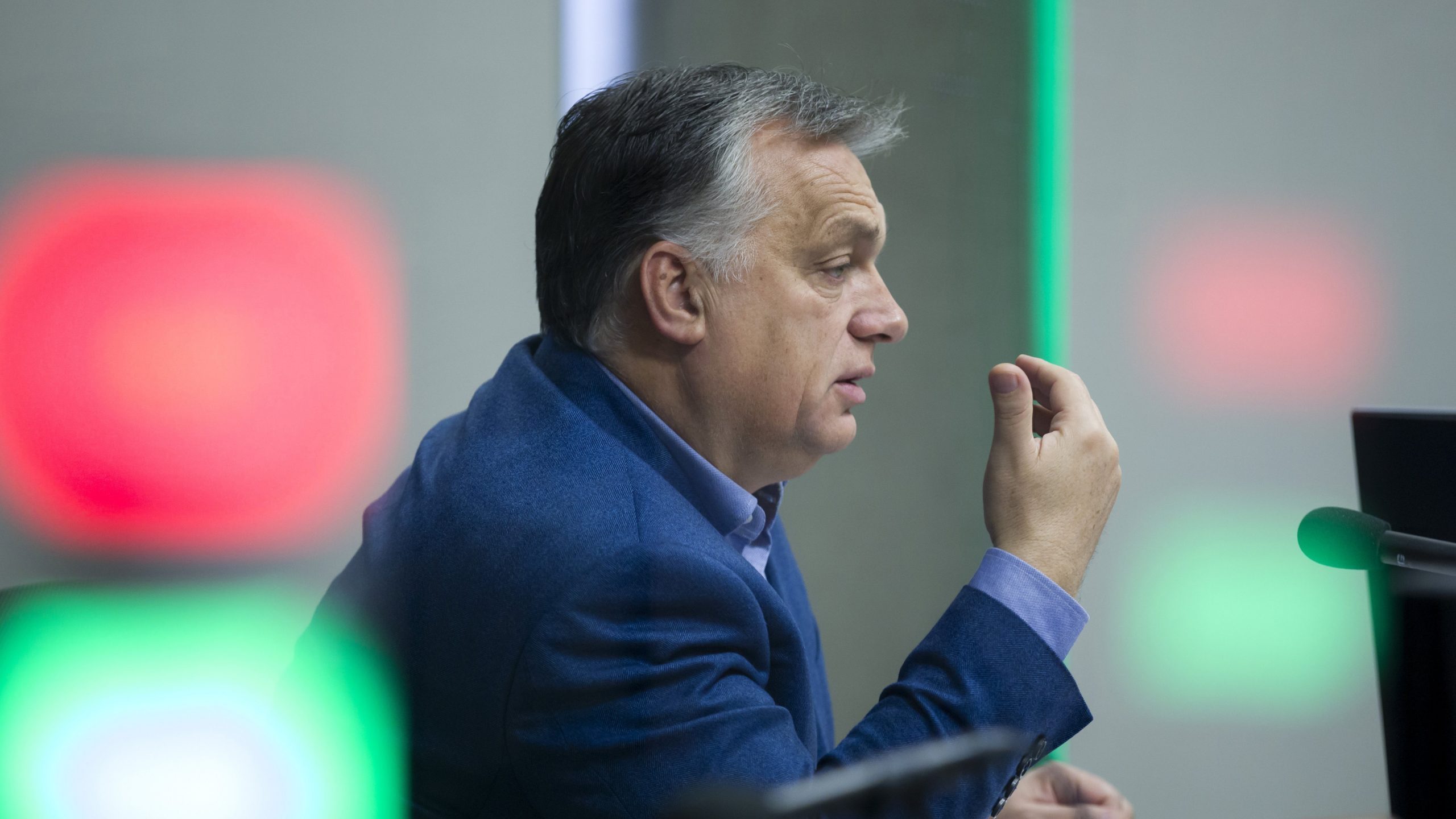
The Prime Minister argued that a ceasefire and peace talks would bring about abatement in the economy because as long as the war lasted and the West reacted to it with sanctions, neither inflation, nor energy prices would decrease.
He said Brussels had “made a mess” of the sanctions; additionally, they are not coupled with price reduction proposals. Therefore, today we are experiencing inflation induced by the sanctions, and the country is paying a sanction surcharge for energy.
He added that Hungary had received exemption from all negative sanctions concerning its energy market. However, the trouble is that as part of the common European market, high energy prices do have an impact on Hungary.
The ultimate solution to high energy prices would be if the European Union abandoned its policy of sanctions, Mr Orbán said, indicating that they have yet to fight hard for that.
He said there are many who keep saying that the war must be won, while others – including Hungary – argue that we need an immediate ceasefire and peace talks afterwards.
He observed: an argument that is often raised is that “we are a nation of freedom fighters,” and in this regard another one is that they do not understand “why such a feisty, freedom fighter nation is now on the side of peace”. No one needs to explain to Hungary “the degree of brutality associated with the Soviet army,” and what it is like to fight against the Russians because “we of all people know what brutality is and what war is”. However, in 1956 “we did not fight because we thought that we would defeat the Soviet Union,” but “we started a revolution and a freedom fight in order to force a ceasefire and peace talks,” he explained, adding that the goal was for the Russians to come to an agreement with the West in peace talks about “us becoming neutral, the same as Austria”.
He observed that voices claiming that we now need a ceasefire, followed by peace talks are becoming ever louder.
Mr Orbán took the view that there is growing dissatisfaction among countries due to the sanctions, and now Hungary is not the only one asking the questions: What is going on here? Whose interests are being served by what is happening? “We must ask our American friends the questions” what is going on and who stands to gain by the present situation “because we Europeans are most certainly losing out,” “you’re standing to gain, while the Russians are minimum not standing to lose,” he said, adding that the whole thing is put together in such a way that “we Europeans can only stand to lose”.
The Prime Minister said the fact that the Nord Stream pipelines had been detonated was a serious matter, according to Hungarian law, they amounted to acts of terrorism, “and if any state had anything to do with it, it’s a terrorist state”. The last high-capacity pipeline that conveys Russian gas from the South to Europe, and so to Hungary, is TurkStream; Hungary is being supplied via that pipeline, and if anyone were to detonate it or make it inoperational, Hungary will regard that as a terrorist attack and will act accordingly, he stated.
The Prime Minister also said he had asked the central bank governor and had instructed the finance minister to minimum halve inflation by the end of the year.
He stressed that at present there was sanctions-induced inflation; if the European Union finally came to reason about this, then within days the prices of a few products, including energy could drop to a half. This high inflation is not being caused by the laws of the market, the underlying reasons should not be sought in the economy; “this was introduced into the economy from the side of politics,” he stated.
He added that the incumbent government had experience in the management of inflation as also in 1998 they had inherited inflation between 10 to 15 per cent.
The Prime Minister said as inflation is forcing families to exhaust their reserves, the fight against it is “in actual fact, a series of family protection measures”. We must fight against high prices because “they are taking their toll on the people and families, are destroying businesses and are causing unemployment,” he pointed out.
Regarding the national consultation about to be launched, Mr Orbán said in Hungary it is customary to find the political means to create a majority or full national understanding, on the foundations of which the government is able to fight much more effectively in the Brussels battles than without it.
He said the sanctions against Russia had not been introduced democratically, that decision had been taken by the Brussels bureaucrats and the European elite.
For the time being, there is democracy in Europe, and what the people think matters. In Hungary, the people are regularly consulted and also involved in decisions “on the most difficult European issues,” be they about migration, the management of the coronavirus pandemic or the present sanctions, he pointed out.
Regarding migration, the Prime Minister said “what we need” is “to be able to protect our borders against illegal border-crossing” because that is a crime. The solution to the problem would be if migrants did not gather at the Serbian-Hungarian border, but instead the southern border of Serbia were being protected; this is in everyone’s best interest, he laid down.
He highlighted that Hungary’s borders must be protected, “in Hungary there won’t be any refugee camps, migrants will not come here, they won’t tell us from elsewhere whom we should live together with”. Who lives in Hungary, “whom we Hungarians want to live together with can only be the decision of the Hungarian people and the Parliament and government elected by them,” Mr Orbán stressed.
